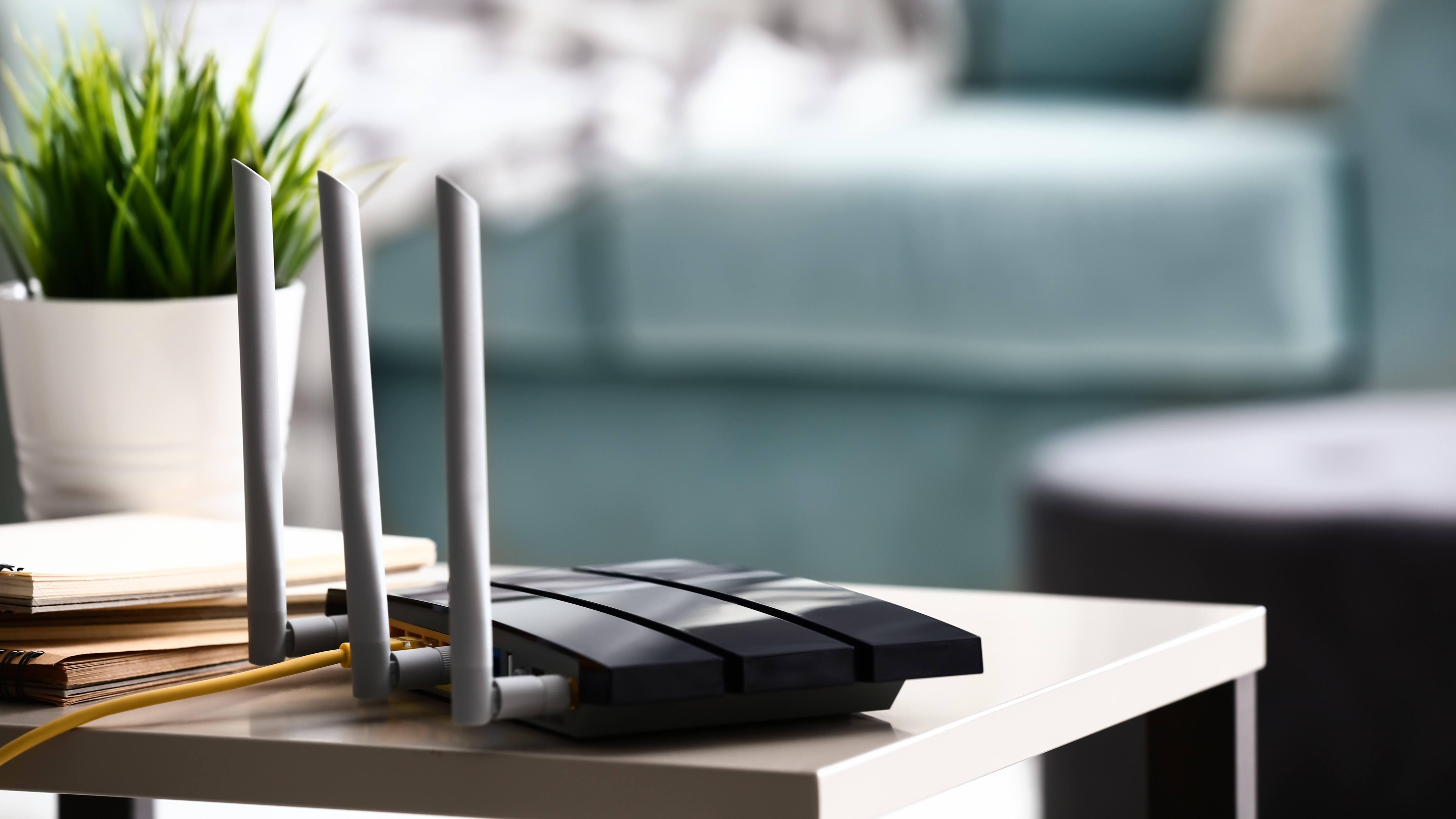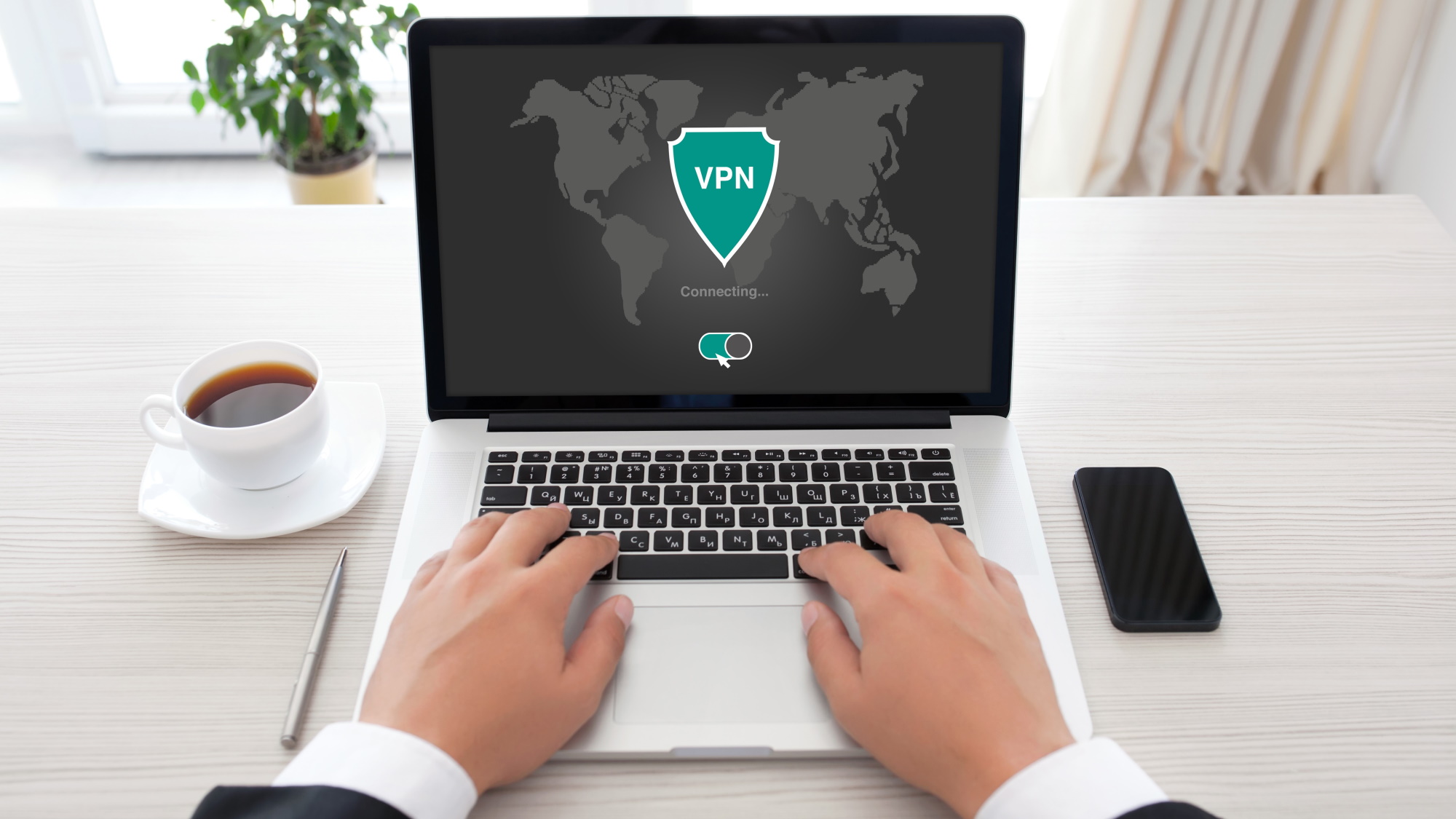Router VPN: What is it, why do I need one, and how to install
Here's everything you need to know about router VPNs, talking you through all the important information, including what it is and how to set one up

Many of the best VPN services provide apps and firmware for routers. By installing a VPN on your router, you can improve the security of every device in your household and ensure your Wi-Fi connection is protected right around the clock.
Besides offering a wide range of security and privacy benefits, a router VPN will also let you bypass geo-restrictions and unblock websites on all your connected devices. As well as this, a router VPN can be used on smart TVs, game consoles, and any other devices that don’t have dedicated VPN apps (as long as they’re connected to your VPN router).
If you’ve not used a router VPN before, you might be questioning what it is, how it works, why you need one, and how to install it. Keep reading to find out all the answers to those questions.
ExpressVPN - Download our #1 VPN recommendation for your Router
The top performer when it came to speed, security features, and the ability to unlock our favorite streaming services, ExpressVPN reigns supreme as the best overall VPN. Complete with a 30-day money back guarantee, new customers can also enjoy three months added to their one year plan free, saving you 49%.
What is a router VPN?
First things first...what is a router VPN, and how does it work? Router VPNs do the same thing as VPNs clients do on smartphones, tablets, and computers. They route your internet traffic through end-to-end encrypted servers, steering it away from servers operated by internet service providers.
In doing so, router VPNs will allow you to browse the internet and use online services without the threat of your web traffic being accessed by ISPs, companies, cybercriminals, and other third parties. At the same time, it’ll allow you to circumvent geo-restrictions and unblock websites regardless of your geographic location.
As you can probably tell by its name, a router VPN is installed on your internet router. It’ll extend the many capabilities of a VPN service to all the devices connected to your internet router, including smart TVs and games consoles. On the other hand, non-router VPNs need to be installed, set up, and used on individual devices.
Why do you need a router VPN?
Now that you know more about router VPNs and how they work, you’re probably wondering why you actually need one.
The biggest benefit of using a router VPN is that it’ll let you secure all your connected devices, no matter how many you own. That’s great news for those who want to enjoy the benefits of a VPN on a wider number of devices than many even premium VPN providers offer.
If you own lots of devices, you’ll also find a router VPN quicker to set up compared to individual VPN clients. You only need to install the VPN onto your router, and then every device connected to the router will automatically be protected by the VPN service, rather than installing an app on each individual gadget.
This will also make any future updates faster to install, too.
What's more, some VPN providers only provide apps for major operating systems such as Android, iOS, Windows, Mac, and Linux. With a router VPN, you can connect any device or operating system to it, equipping your gaming console with the best gaming VPN to protect your high score, or access the best streaming VPN on your smart TV.
Providing all the same advantages as a standalone service, too, a router VPN will encrypt your internet traffic, unblock websites, improve Wi-FI security, stop bandwidth throttling, protect against cyberattacks, and offer many other benefits.

Are there any disadvantages to a router VPN?
While router VPNs have lots of benefits, there are some aspects to keep in mind when it comes to router VPNs.
For starters, not every router will allow you to install VPN software onto it. You may require a specific router for use with a VPN.
Generally speaking, they’re also more fiddly to install and set up than single-device VPNs. As routers don’t have displays, you’ll need to configure and control the VPN using the router’s clunky dashboard via a computer or mobile device.
How to install a router VPN
Router VPNs have lots of impressive capabilities, but how do you install and set up a VPN service on your router? The simplest method of installing a router VPN is by choosing a VPN with a comprehensive and easy-to-use router app. We always recommend ExpressVPN and NordVPN, two services that reign supreme in our buying guides.
When you’ve selected and purchased a susbcription to either ExpressVPN or NordVPN, you’ll have access to all its VPN clients (including a dedicated VPN app for routers). You'll also need to ensure your chosen VPN client is compatible with your router, with most VPN providers offering a list on their help forum of the models it works with.
Once you’ve determined this and downloaded the firmware, power up your VPN router and install the appropriate firmware using instructions which will be provided by your chosen VPN. If you get stuck, you can always fire up customer support, with the likes of ExpressVPN and NordVPN offering stellar 24/7 live chat.
As soon as you’ve installed the firmware onto your router, the next step is connecting your computer to the VPN router using Wi-Fi or a physical wire.
When you’ve successfully connected your device to the VPN router, the VPN dashboard should automatically appear on the screen. Here, you can log into your VPN account. Now, you’re done.
If you own a router that isn’t supported by your chosen VPN service or choose a number of different VPN providers, the process will likely differ, though the fundamental steps remain much the same.
Generally speaking, the vast majority of top VPN providers support routers and provide clear instructions on how to install a router VPN. Whichever provider you choose, we’d recommend finding and reading their router VPN setup guides.
- Discover which is the best Windows VPN with our handy guide
- Android fan? You can see which provider got the best Android VPN top spot
- Unsure what the fuss is all about? Here's why you should use a VPN on your phone
Get all the latest news, reviews, deals and buying guides on gorgeous tech, home and active products from the T3 experts
Nicholas Fearn is a freelance technology journalist and copywriter from the Welsh valleys. His work has appeared in publications such as the FT, the Independent, the Daily Telegraph, The Next Web, TechRadar, Android Central, Computer Weekly, and many others. He also happens to be a diehard Mariah Carey fan!
